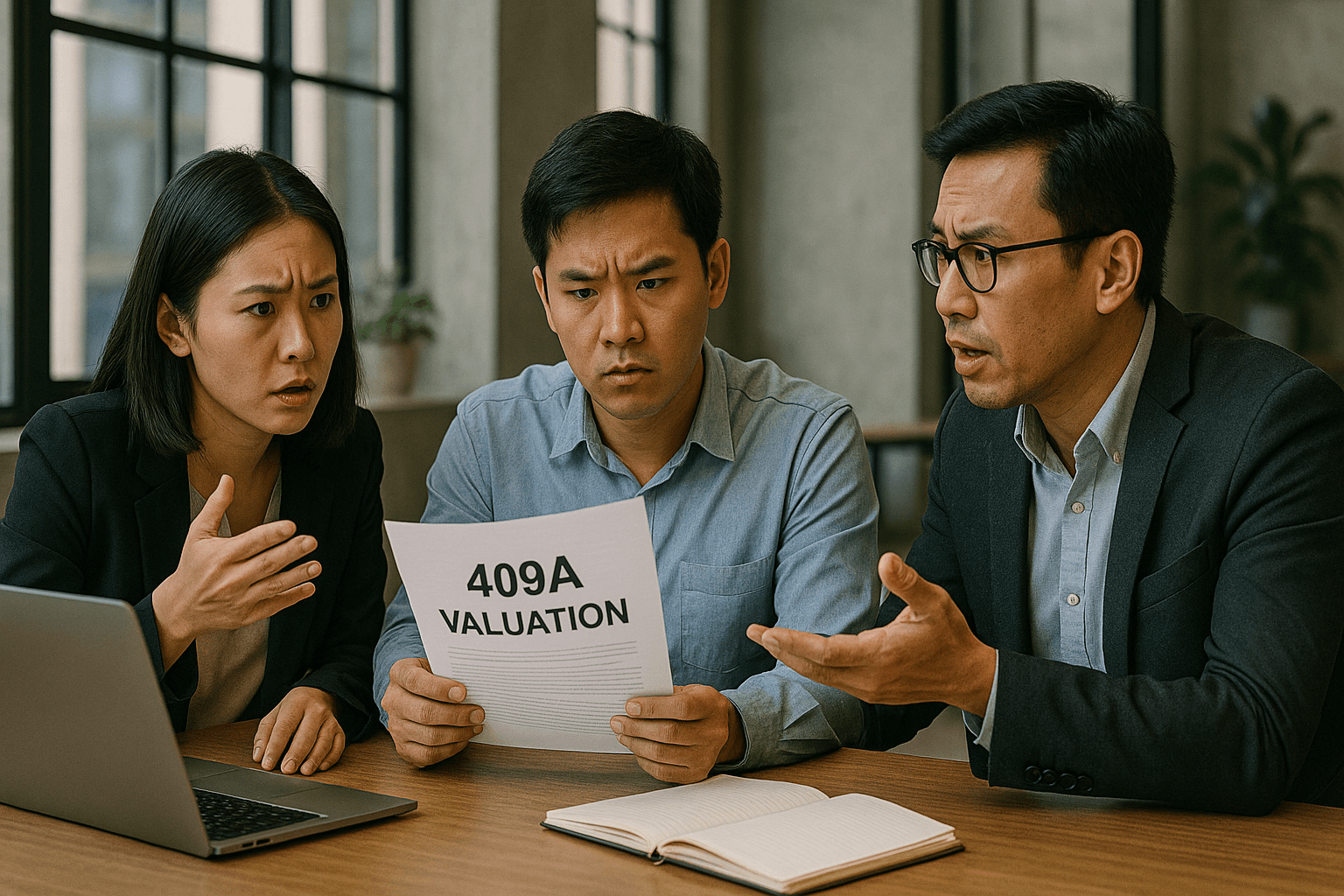409A Valuations in Southeast Asia
In a narrow co-working loft above Singapore’s Club Street — where the scent of coffee mingles with the tang of fresh ambition — a 32-year-old founder scrolls through her cap table with a worried brow. Her startup just closed a pre-Series A round. The term sheet is signed, the champagne is long gone. Now she faces a question that feels oddly foreign, and yet unavoidable: “Do we need a 409A valuation?”
The answer, as it turns out, is less about compliance and more about credibility. And increasingly, startups in Southeast Asia are learning that what happens in Palo Alto doesn’t always stay in Palo Alto.
An American Rule With Global Reach
Section 409A of the U.S. Internal Revenue Code was enacted in 2004 after a string of corporate scandals — think Enron and WorldCom — exposed the murky underworld of deferred compensation. The regulation requires that stock options issued to employees have a fair market value (FMV) as their strike price, verified by an independent valuation. If companies don’t comply, employees face stiff tax penalties.
It’s an American solution to an American problem. So why, two decades later, are founders in Thailand or Vietnam being told to get a 409A valuation?
Because capital and talent are borderless. And 409A, for all its bureaucratic clunk, has become a passport stamp of legitimacy in the venture world.
The Credibility Currency
For Southeast Asian startups, especially those aspiring to tap U.S. venture capital, a 409A valuation signals something beyond regulatory box-ticking: it signals maturity.
“You may not need it legally,” says a Singapore-based fractional CFO of a late-stage SaaS startup. “But try explaining to a Sequoia or Andreessen term sheet why your employee options are priced off a spreadsheet model your cousin made in Excel.”
U.S. investors are acutely aware of 409A — and often, implicitly or explicitly, expect it. Not having one raises eyebrows. Having a well-documented, defensible FMV — preferably from a U.S.-recognized third-party — builds trust. It shows you know the rules of the game.
Local Teams, Global Employees
Here’s the more pragmatic angle: many startups in Singapore or Bangkok have remote staff. Some are U.S. citizens. Others are Southeast Asians who studied or worked in the U.S. and still file taxes there. If even one option grant goes to a U.S. taxpayer, you’re playing in Uncle Sam’s backyard — and 409A applies.
Unlike Europe, where local employment laws often provide some buffer, Southeast Asia lacks harmonized employee equity frameworks. That vacuum pushes startups to adopt U.S. best practices by default. Legal firms from Jakarta to Manila now include 409A guidance in their equity playbooks — not because it’s the law, but because it’s the lowest-risk path.
Dealing With the Paperwork Elephant
Of course, 409A isn’t free. A full valuation can cost between $2,000 and $10,000 depending on complexity. For bootstrapped founders, that’s real money.
“Think of it like hiring a cybersecurity consultant,” says an angel investor in Kuala Lumpur. “You don’t have to do it — but wait until something goes wrong, and you’ll wish you had.”
Several valuation firms, like Carta, Scalar, and Eqvista, now offer packages tailored to emerging markets. Some even bundle 409A with cap table management or investor reporting — treating valuation not as a compliance exercise but as a tool of strategic storytelling.
Looking Ahead: The 409A as a Signal
There’s a strange irony at play. In an era where founders pride themselves on disrupting old systems, the adoption of 409A valuations in Southeast Asia isn’t about embracing Silicon Valley orthodoxy — it’s about navigating its gravitational pull.
As ASEAN capital markets mature, more local firms will eventually develop their own equity pricing norms. But until then, 409A serves as a lingua franca. A common denominator that tells investors, acquirers, and regulators: we know what we’re doing.
Because in the high-stakes world of startup fundraising and talent retention, the worst thing isn’t failing to comply with 409A.
It’s looking like you’ve never heard of it.


Leave a Reply